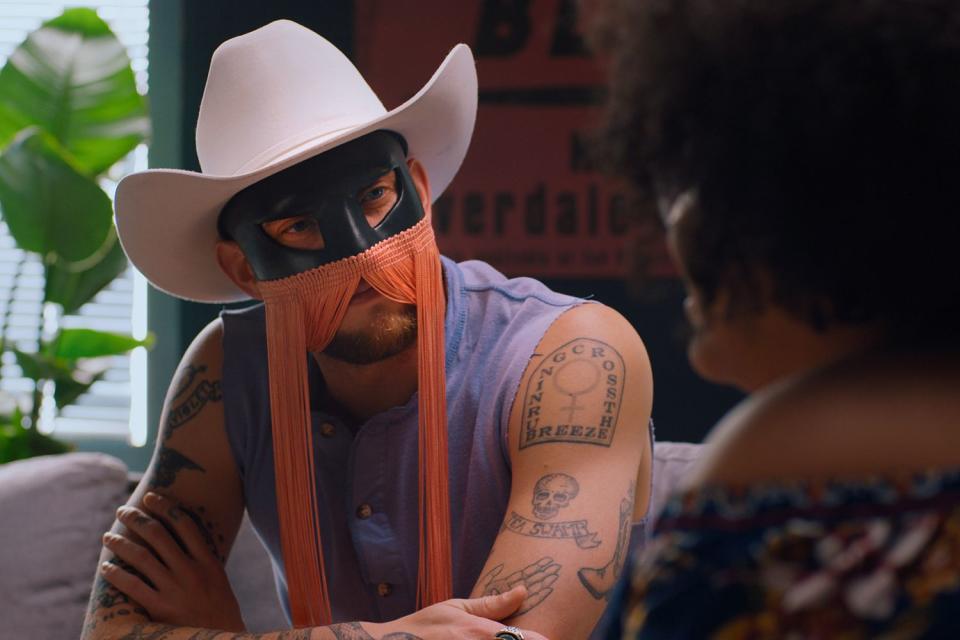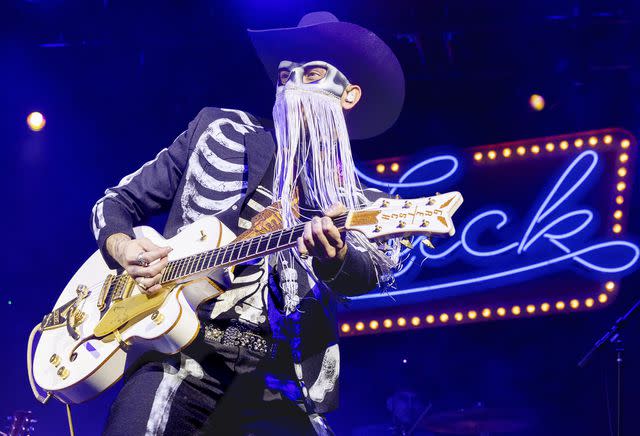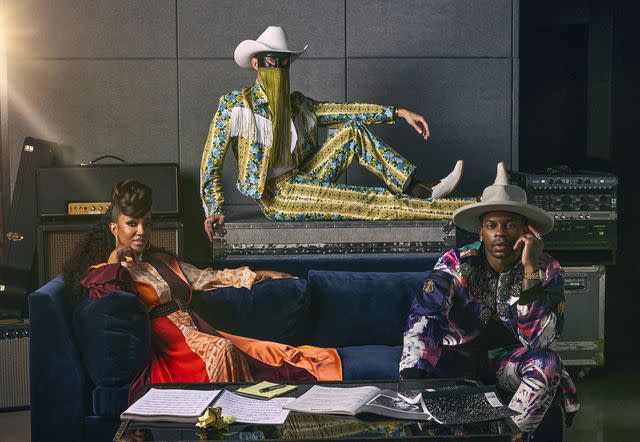Orville Peck 'Refused' to Give Up Despite People 'Laughing in My Face' for Being Openly Gay Artist (Exclusive)
- Oops!Something went wrong.Please try again later.
The "Dead of Night" singer serves as a talent scout on the Apple TV+ singing competition My Kind of Country

Orville Peck is opening up about his long road to music stardom — and how he's helping the next generation of country artists.
The "Dead of Night" singer, 35, and fellow country singers Jimmie Allen and Mickey Guyton appear as talent scouts on the AppleTV+ competition My Kind of Country, which is produced by Reese Witherspoon and Kacey Musgraves. On the show, the trio search the globe for (and mentor) rising country talent who offer a new perspective in the genre.
Ahead of the show's final episodes dropping on Friday, Peck spoke to PEOPLE about championing new talent, collaborating with icon Shania Twain and the challenges he's faced as an openly gay artist in a traditionally conservative genre.

What drew you to the show?
They were looking for perspectives that aren't typically found in country, which felt in line with what I'm trying to do within the genre. And they were going to search worldwide and I would be involved in that search and be able to look for what I wanted to see as a new country star, so that excited me, of course, because it's what I've been doing within my own career, is trying to bring different perspectives and representation into country music.
What advice were you able to give the artists you worked with that you wish you'd gotten when you were coming up?
Mickey and Jimmy and I all talked about this amongst ourselves a lot during this filming because I think we started to realize in seeing these artists and getting to know them and hearing about their fears and the things that hold them back or make them feel like they don't fit in — it reminded us when we had felt that way within our respective careers.
Related:Apple TV+'s My Kind of Country Crowns First Winner: 'I Still Haven't Processed It'
I think the thing that was missing for all three of us was just that encouragement; just having a mentor or someone that had done what we were trying to do before us and could say, "Look, go this way, do this." We didn't have that. We had to really blaze our own trails. And as rewarding as that was — because I wouldn't change anything about it — it would've been nice and helpful. And I think that is what drew all three of us to this project and why we were so genuinely invested in these artists and passionate about these artists. Because we could see a piece of ourselves in each of them, and we wanted it to be easier for them than it was for us.

What do you hope people take away from the show?
I hope that people who maybe felt like either country music wasn't for them because of who they are or, if they like country music but they didn't think that they had a place in it as a fan or an artist themselves, I hope those people can take away that they are very much welcome in country music and they should absolutely be thriving in it and making space for themselves within it. And I think people who maybe thought that on the other side of things, country music is supposed to just be about one thing and maybe they were a bit closed-minded about other people within country, I hope this opens up some minds and some eyes and some ears that country music should be for everybody and is for everybody. It always has been for everybody.
How was it breaking into country as an out queer artist?
It was a lot of people practically laughing in my face, telling me that being an openly gay man in country would never work. I've met very discouraging moments in my career. But I just kept my chin up, and I refused to let anybody tell me that I couldn't do what I wanted. If someone tells me I can't do something, it makes me want to do it even more.

What's up with your signature fringe mask?
The misconception is that it's a character or I'm cultivating some persona or whatever. But I grew up loving country where there was an intersection between theatricality and very honest songwriting. Dolly's a perfect example — the big wigs, the crazy outfits, but it's her. For me, I was obsessed with the Lone Ranger, cowboys hiding their face, so that's what I wanted to do. I wanted to mix really vulnerable personal music, which is what I write, with this theatricality and performance.
You worked with Shania Twain on your 2020 single "Legends Never Die." What did that collab mean to you?
She's meant so much to me. I was a 14-year-old kid in South Africa listening to Shania Twain in my bedroom. She's a gay icon. She's a fashion icon. She's always been an ally. And meeting her, the most beautiful thing about her is that she's the most down-to-earth, lovely, chill person. My first experience really spending time with her was on her ranch in Las Vegas, and she was literally running her horses in the mud and just wearing jeans and a T-shirt, and we were having burritos out on the deck and just talking about horses and life and music. She's a very strong person, but she is very, very sweet and open and also a very defiant trailblazer in her own way as well. When she first came to Nashville, she had a lot of issues about her acceptance in country music. They didn't like how she dressed. They didn't like what she was singing about. And she refused to be anything except this strong woman who wasn't going to be subservient to men. And look at her now. She's a global icon.
For more People news, make sure to sign up for our newsletter!
Read the original article on People.

